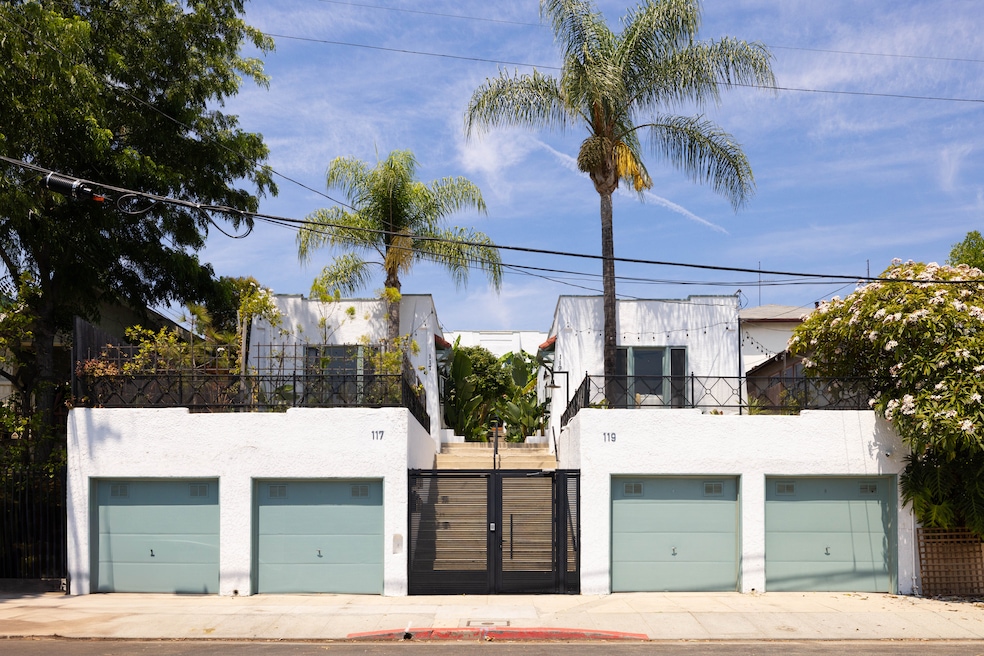Aiesha Mannle has been in the real estate industry for about a decade — but it wasn't until about three years into her career that she became acquainted with the idea of tenancy-in-common.
"I had clients who were renting in Venice and were essentially priced out," she told Homes.com in an interview. "We had looked at condos and then a TIC came on the market at that time, and that was my first sale in TICs."
For Sonya Coke, TIC living was less of an aha moment. Growing up in London, TICs were "one of the normal ways of owning real estate," she said. "So it's always been kind of a normal thing to me."
The two Los Angeles real estate agents now work as a team at Nourmand and Associates with a focus on tenancy-in-common properties.
"We had lunch about it," Coke said of the partnership, "and then, the more we talked, we realized we should probably partner up because we think very similarly, we work very similarly."

The following interview with Coke and Mannle has been edited for clarity and length.
What is tenancy-in-common?
Coke: It’s a form of co-ownership. It’s fractional ownership; you co-own with other people.
You have a partnership with X amount of other homeowners and you have exclusive rights to your unit, but you own a portion of the property as a whole. So, you're able to purchase real estate in a neighborhood you couldn't otherwise afford.
How is a TIC property different than a co-op or a condo?
Coke: A co-op usually has a board that you have to interview with, and then they have the option to accept or deny you. TICs don’t have that. That’s a perk for a lot of people.
A condo, you own that unit. It’s similar to owning a home. There’s one parcel.
With a TIC, you own a percentage of the overall property, nothing gets divided. Think of a TIC like a parcel, land with a building on it. None of that gets divided up.
Other things remain similar. You are sharing any repairs on the property, having HOA meetings. You are adhering to a mutual agreement that’s been created amongst everyone.
How can a buyer finance a TIC purchase?
Coke: You finance through a handful of lenders right now in Los Angeles. You need a minimum 15% down payment. Your credit has to be excellent.
Mannle: If someone comes to us and they can only do an FHA loan or a smaller down payment, there might be some limitations there.
Coke: It’s not a conventional loan, it’s called a fractional loan, so that’s why there are only a handful of lenders. You can get a five-, seven-, 10-year adjustable-rate mortgage and a 30-year, fixed mortgage.
We see most people do a seven- or 10-year ARM because it’s usually their first home and we explain that they’re not going to be there as long as they think, and the ARM can get them a slightly lower interest rate.
What is the process of selling a TIC property?
Coke: I don’t think it’s harder. What we find is you have a bit of a longer process. The TIC lenders take a little bit longer to process, but not by much, maybe it’s like seven to 10 days.
What risks should homebuyers consider before purchasing a TIC home?
Mannle: It’s not much different than someone buying a home. We’re taking into consideration needs, location, work, social, community — all of those factors are coming up. When we are considering a TIC or any purchase, it’s a really comprehensive kind of conversation and search.
Coke: Buying a home of any kind — a condo, single-family, a co-op — all of it has some risk involved.
How do tenants manage their relationships with one another?
Mannle: Everyone’s coming together with a clear directive of what they’re doing on the property — meaning they collectively own it.
Part of the TIC is fostering a community spirit, so it’s great that you meet your neighbors and it usually works out that everyone really vibes well. Clients kind of understand what they’re getting into and they’re open to it — because if you’re not, it’s pretty intimate.
When we sell a house, during the inspection period, you might want to go by a couple of times to see that it’s the right fit. That philosophy is being applied here, too. Similar to a home, like buying on a block, you just want to see that this is the right fit.
Tenants have to sign an agreement upon purchasing a property in a TIC. Who sets that, and what does it include?
Coke: The agreement is set prior to the building put on the market as TIC — so the owner works with an attorney to create an agreement.
Most of them are very similar. There are a few areas that might change. There are sometimes where you see separated homes on one lot, and tenants are responsible for their actual building. We also see it sometimes with water bills.
What is the biggest misconception about TIC properties?
Coke: That they are riskier real estate purchases.
